Nuclear Medicine / Treadmill Stress Tests
Cardiac Nuclear Stress Test
Nuclear Stress Test, also called Myocardial Perfusion Imaging, is used to assess coronary artery disease, or CAD. CAD is the narrowing of arteries to the heart by the build up of fatty materials. CAD may prevent the heart muscle from receiving adequate blood supply during stress or periods of exercise. This frequently results in chest pain. The results of this test allows your physician to compare blood flow during stress and at rest.
There are two parts of the test that consist of a REST study and a STRESS study. The rest study will consist of an injection of radioactive tracer through an IV. One hour after injection, images will be taken of your heart by a nuclear gamma camera. The stress test will require ECG leads that are placed on your chest to monitor your heart rate while you walk on a treadmill. Your blood pressure and heart rate will be recorded. If you are unable to walk on a treadmill you will be chemically stressed using a pharmacologic agent. A small dose of radioactive tracer will be injected through and IV in your arm to simulate the heart under exercise conditions. Approximately 60 minutes after the injection, images of your heart will be taken. There are usually no side effects from the injection. However, if you think you are pregnant, please inform the technologist immediately. The test can take up to four hours to complete. After completion, the images are then sent and interpreted by a cardiologist.
What to Expect
There are two parts of the test that consist of a REST study and a STRESS study. The rest study will consist of an injection of radioactive tracer through an IV. One hour after injection, images will be taken of your heart by a nuclear gamma camera. The stress test will require ECG leads that are placed on your chest to monitor your heart rate while you walk on a treadmill. Your blood pressure and heart rate will be recorded. If you are unable to walk on a treadmill you will be chemically stressed using a pharmacologic agent. A small dose of radioactive tracer will be injected through and IV in your arm to simulate the heart under exercise conditions. Approximately 60 minutes after the injection, images of your heart will be taken. There are usually no side effects from the injection. However, if you think you are pregnant, please inform the technologist immediately. The test can take up to four hours to complete. After completion, the images are then sent and interpreted by a cardiologist.
Preparation:
- Refrain from ANY caffeine products at least 24 hours prior to exam.
- Refrain from eating or drinking 6 hours prior to exam.
- Discontinue any beta-blocker or calcium channel blocker medications 24 hours prior to exam.
- Diabetic patients should take one-half their insulin dose the morning of exam.
- Bring a list of current medications.
- Be aware that nuclear stress exams will take 3-4 hours to complete.
- Wear comfortable loose-fitting clothing and tennis shoes for the exercise treadmill portion.

Treadmill Stress Test
During a stress test you will walk on a treadmill which makes your heart work progressively harder than normal. An electrocardiogram (ECG) which monitors your heart’s electrical rhythms, heart rate (HR), and blood pressure (BP) will be checked before the test begins. The rate of exercise or degree of difficulty will gradually increase. You will be asked to exercise until you feel exhausted. The technician will ask you to notify them of any symptoms like chest discomfort, shortness of breath, dizziness, lightheadedness, fatigue, or any other unusual symptoms while on the treadmill. It is normal for your heart rate, blood pressure, breathing rate, and perspiration to increase during the test. The technician will watch for anything on the ECG monitor that suggests the test should be stopped. After the test, you’ll walk slowly for a couple of minutes to cool down. Your ECG, HR, and BP will continue to be monitored until the levels begin returning to normal. Although the appointment lasts about 60 minutes, the exercise time is usually between 7 and 12 minutes.

Diagnostic Ultrasounds

Nuclear Stress Tests

Cardiac Monitoring Tests

Health Screening Tests

COLUMBIA OFFICE
115 Blarney Drive
Suite 105
Columbia, SC 29223
803.419.4235 phone
803.419.4236 fax

IRMO OFFICE
1 Wellness Blvd.
Suite 105
Irmo, SC 29063
803.419.4235 phone
803.419.4236 fax
